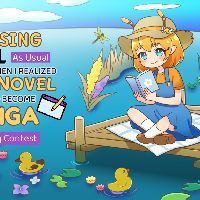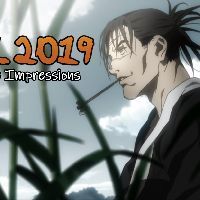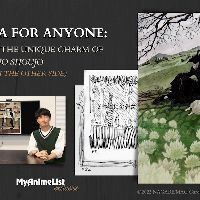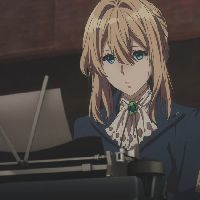This article was written by KataraNaraand edited by SendPieSenpai and Impossible of the MAL Articles Club.
Interested in writing or editing for us? Click here!

Heroes crossover! From the Aпime facebook page.
In the world of anime, we encounter thousands of characters and personalities. Some we love; others we love to hate. It's no surprise that the characters we know and love fall into some sort of archetype. As literary fans will confirm, archetypes are the key players of any story. However, compared to literature, anime allows more creative license, giving producers the freedom to truly portray personality quirks and physical differences. This makes you wonder: are our favorite characters solely based on our own preferences? Or are they based on something deeper?
Now, some of you may be wondering: what in Kami-sama's name is an archetype? To briefly sum up, an archetype is a set of personality traits that make up a specific persona. For example, Naruto, Ichigo, and Goku would be the "hero" archetype. Don't get confused; just because they are main characters doesn’t automatically make them part of the "hero" archetype. Supporting characters can also be part of the hero archetype. However, most anime do have a hero as their main character—sometimes even more than one.
Importantly, even within an archetype, no two characters are exactly identical. Each one is a unique mix of archetype traits and their own personality. Take the previous examples: Naruto, Ichigo, and Goku would never "kick a guy while he's down." This is their archetype, just like how they're all a little slow in their studies. However, their approaches to training, especially at the very beginning of their respective stories, are very different.
These three characters, though they might be generic, are loved by millions around the world. Being a part of the millennial generation as many anime fans are, researching what these kinds of characters inspire within their fandoms is pretty simple. It's obvious to most that they are, essentially, the underdogs. We all love a good underdog story, but is that all there is to it? Sure, Goku is naively kind, Ichigo is stubbornly confident, and Naruto has his "ninja way," but I felt there was something beyond these obvious facts that I had to find.
Archetypes, throughout time, have remained mostly unchanged. In fact, Carl Jung first applied this term to literature. He noticed that characters hardly changed over centuries of oral and written myths, religions, poetry, and history. Jung then hypothesized that the human species must have a collective subconscious that acts as a universal, and primal, memory.
His theory, despite its detail, didn't really explain why these characters were so endearing. Many fans of literature think back on the most beloved characters from great books such as War and Peace, Harry Potter, Canterbury Tales, and The Hobbit. They were all written in different time periods, but remain centered around vivid characters and deeper meanings. Each has protagonists whom we can't help but empathize with, which makes you think that maybe that was the collective conscience Jung was talking about. Could it be that, no matter the era or the situation, human beings generally imagine themselves as the hero? A question like that seems to have the obvious answer of "yes," but is it that simple to put yourself in someone else's shoes? It is as if Pandora’s Box (even though the correct phrase would be "Pandora's Jar") started spewing more questions than answers. The frustration of generic characters makes you seriously reconsider what it all means for some of the most loved characters in the anime universe.
The word "recycled" keeps popping up and it really eats at you. Not only are you invested in characters, plotlines, and worlds, but it is also the compelling hope that someday, we’ll get to experience catharsis. Fans are invested in the chance to see a culmination of everything, but mostly the final development of our favorite characters. With the ending of Naruto Shippuden happening only a few months ago, many of us felt the ultimate bliss as the conclusion finally came. The wonderful and seemingly inconceivable ending was not what many expected from Konoha's most unpredictable knuckle-headed ninja, especially from episode one. It stands to reason that this is what we all look for in a story. Don't we go crazy for that development and that journey? And then, like Kenpachi in a good fight, you feel excited— teleported to another world.
The reason we love these characters so much isn't because of some predetermined collective memory or because of their similarities. This can apply to any favorite character, no matter their role or archetype. What we, as human beings, remember most are our emotional milestones and significant moments. We are always searching for the next one and this translates into anime so well with its flashy characters and intricate storylines. We see their triumphs as a reflection of our own and, in a way, connect ourselves with their situation. By now, this is starting to sound like some garden variety psychology, but it is so much more than that. Artistic interpretation has always varied from person to person and our favorite anime is where we can express that individual view. Even within the stereotypes we are given.
When we see these characters—especially the stereotypical heroes—we immediately see their most redeeming quality. It's almost certain that, within the first episode, it's clear what kind of character they are. If they're so predictable, why do we love them? Why aren't we boycotting the stereotypical hero archetype? Because we are a species of stereotypical heroes. They embody everything that our species, as a whole, view as ideal. They are strong, courageous, honorable, and tenacious, selflessly facing their problems head-on. Likewise, we see our own weaknesses in these characters as they struggle through their storylines and emotions. Thus, more often than not, they become our favorites. Just like how stories and folktales have a hidden meaning, our favorite characters actually represent the underlying story of our humanity.
Isn't that so typical of our species? We create the ideal worlds we want to see, helping us reach millions around the globe. By doing this, we start to understand, and better appreciate, individuality through the artistry and genius of anime and manga. Even if it's only subconsciously, the artists, fans, and community all treasure this sense of ideal human interaction and reaction that ultimately connects us as a species. Perhaps that is why we love those characters so much. We see in them everything that connects us in this usually harsh world.




